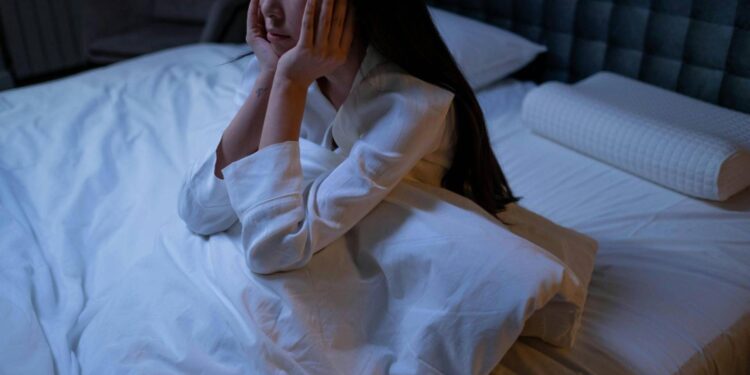As people look for innovative methods to tackle their health challenges, Cognitive Behavioral Therapy for Insomnia (CBT-I) has been endorsed by the American Academy of Sleep Medicine as a viable substitute for conventional medical treatments. Achieving restful sleep enables individuals to face daily challenges with greater resilience, often resulting in a more positive, energized, and rejuvenated mood. Termed ‘sleep hygiene,’ this principle covers both behavioral adjustments and environmental modifications that contribute to enhanced overall rest.
Regrettably, many struggle to secure sufficient high-quality sleep. This issue is particularly pronounced in those suffering from conditions like insomnia, where relying solely on sleep hygiene may not alleviate this pervasive and disruptive issue. Those affected by insomnia often need additional assistance to reshape their sleep behavior, prompting them to explore conventional medication options. While modern medicine may offer quick relief for these individuals, it frequently neglects to address the fundamental issues contributing to this challenging condition.
Expert in longevity medicine, Dr. Olivia Beresford elaborates on the significant benefits of Cognitive Behavioral Therapy for Insomnia. Often known as CBT-I, this approach aims to provide a lasting remedy where pharmaceutical treatments typically fall short.
She states: “During my personal battle with insomnia, I relied on multiple medications, many of which were not specifically intended for treating insomnia, and I was in search of a solution that would last longer without adversely affecting my health. I discovered a Harvard CBT-I training program that guided me in establishing a practice that currently assists numerous patients.”
Numerous elements influence insomnia and can be aggravated by anxiety, intrusive thoughts, and actions. Behaviors that may worsen the issue include consumption of alcohol shortly before bedtime, use of nicotine, and prolonged exposure to blue light. These factors, among others, can hinder the body’s inherent ability to rest and detract from sleep quality. However, adopting better practices, such as fostering an environment conducive to high-quality sleep, can serve as an excellent starting point. Establishing a consistent nightly routine is also vital for helping the body align its circadian rhythms.
Having faced insomnia herself, Dr. Olivia Beresford conducted in-depth research on CBT-I and now shares her insights with clients, aiding them in achieving improved rest, optimizing their sleep quality, and enhancing their overall health. Like Dr. Beresford, CBT-I practitioners empower clients to confront their insomnia-triggering thoughts and discover proactive strategies. A therapeutic method developed over the past fifty years, CBT-I incorporates various techniques, including significant contributions from psychologist Richard Bootzin, who popularized stimulus control therapy as a core component of this approach.
Patients suffering from insomnia who have engaged in CBT-I report experiencing fewer adverse side effects overall and increased sleep duration per night. CBT-I has demonstrated promising outcomes in tackling the underlying issues linked to their persistent sleep disorders.
Dr. Beresford adds: “Through Cognitive Behavioral Therapy for Insomnia, clients experience improved rest and more profound sleep. Many individuals grapple with chronic worry over their sleeplessness, which breeds habits that further obstruct their ability to sleep effectively. Addressing these challenges, CBT-I has yielded encouraging outcomes, proving to be a promising technique for fostering a healthier outlook on sleep.”
The adverse effects of long-term sleep deprivation and insomnia can be extremely concerning. In some instances, they can heighten the risk of developing chronic health issues, underscoring the importance of maintaining effective sleep hygiene practices. Leading experts like Dr. Olivia Beresford suggest that CBT-I can be life-changing when traditional sleep hygiene strategies fail to produce lasting improvements.


